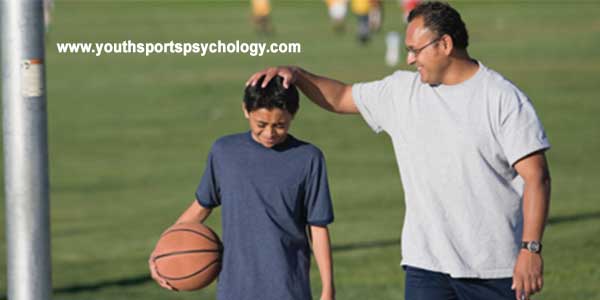
Helping Sports Kids Set Goals
It’s important for sports kids to go into a competitive season with realistic goals. This can help give kids motivation, direction and purpose.
Starting a competitive season with excessively high expectations makes sports kids feel pressured, anxious and distracted.
And kids can feel even worse when they encounter adversity.
Let’s step back and look at goals, expectations and adversity.
A goal is a well-defined, measurable, attainable objective.
Just as important, goals can change. If kids reach their goals before the end of the season, they can establish new ones.
Or if something unexpected strikes–such as an injury–kids can adjust their goals. They can extend the date for meeting a goal or goals.
Expectations, on the other hand, are rigid. Expectations usually sound like, “I have to…,” “I must…” and “I need to…”
Here’s the problem with expectations. There’s no flexibility. No matter what happens, expectations remain the same. That means that expectations generate tension, anxiety and pressure in young athletes.
And tension, anxiety and pressure are sure to hurt kids’ performance and make them feel frustrated, as if they’re always falling short.
When sports kids with unrealistic expectations experience adversity, they become devastated and feel failures.
Truth is, every athlete experiences some degree of adversity.
When athletes have realistic goals and encounter adversity, they feel as if they have some control; they can change their objectives to work toward something positive. This helps athletes stay motivated, confident and positive.
But high expectations and adversity can undermine athletes’ performance.
High expectations and injury derailed Philadelphia Sixers’ small forward Zhaire Smith in his 2018-19 rookie season.
Smith was selected as the sixteenth overall pick by the Phoenix Suns in the 2018 NBA draft. He then was traded to the Sixers, a team that hoped Smith would contribute to a playoff run.
He had high expectations piled on him. In his first year in the NBA, the pressure caused him to be tight and hesitant when he played.
He was also derailed by a fracture in his foot and an allergic reaction.
Smith played in only eight games during the year.
After that experience, Smith has changed his perspective for the upcoming year. He’s focused on doing little things to help the team. That’s a better attitude.
“I’m coming in, 16th pick, first-rounder. I’m coming in like, ‘I’m going to drop 30.’ But this year, I’m like, ‘Let’s just have fun and have the game come to me, do the little things and help the team win,’” he said.
It’s important for sports kids, before each season, to sit down and establish goals for the season. Parents can help ensure those goals are realistic and attainable by the end of the season.
Help Sports Kids Understand that Goals are Fluid
They can be adjusted.
With sound goals, kids can maintain high confidence, stay focused and keep their motivation high through the season.
To ensure kids understand goals, help them determine what they want to accomplish within the time constraints of the season.
They should talk to their coach or mental game coach and write down specific, attainable, measurable goals and a plan of action for the season.
If they encounter adversity, they should re-evaluate and adjust goals, again, talking to coaches.
They should also identify the expectations that create pressure and frustration, and commit to letting go of those expectations. Help them focus on small, manageable, process goals for their games.
If you help kids understand the difference between expectations and goals, you’ll help them avoid frustration and sinking confidence.
Related Articles on Youth Sports:
- Setting Goals for Young Athletes
- Help Kids Focus on Goals While They’re Isolated
- Help Young Athletes Set Goals for the Season
*Subscribe to The Sports Psychology Podcast on iTunes
*Subscribe to The Sports Psychology Podcast on Spotify
The Composed Sports Kid

“The Composed Sports Kid” audio and workbook digital download program for young athletes and their parents or coach helps kids cope with frustration and anger in sports. Help your sports kids learn how to manage expectations and let go of mistakes so they can keep their head in the game.
The Composed Sports Kid system is really two programs in one–one program to train parents and coaches how to help their kids practice composure, and one program that teaches young athletes–ages 6 to 13–how to improve composure, let go of mistakes quickly, have more self-acceptance, and thus enjoy sports more!
